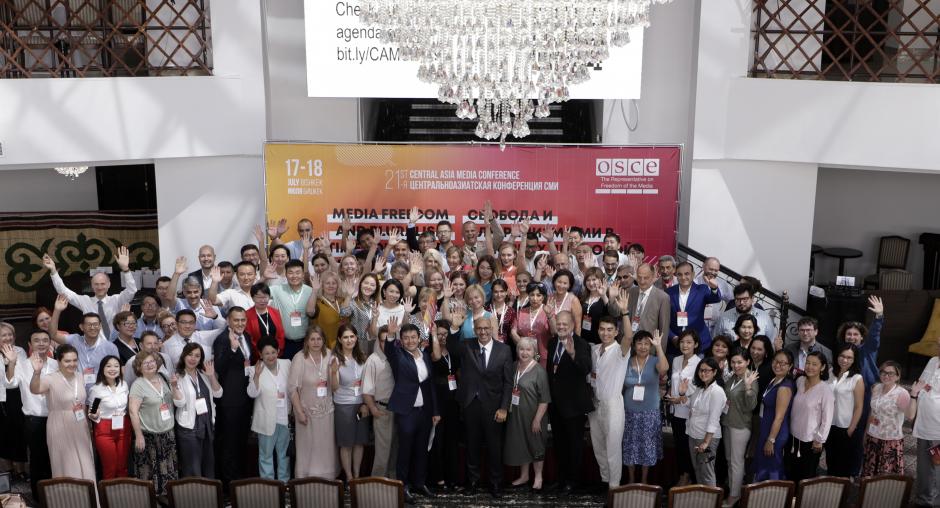21st Central Asia Media Conference concludes in Bishkek, OSCE Representative highlights need to enhance media pluralism in digital environment

BISHKEK, 18 July 2019 – The 21st Central Asia Media Conference organized by the OSCE Representative on Freedom of the Media, Harlem Désir, concluded today in Bishkek.
During the two-day conference, journalists and representatives from the media and NGOs, together with international experts and state representatives from Kyrgyzstan, Turkmenistan and Uzbekistan, discussed issues and challenges arising in the context of new media technologies in Central Asia. Topics included the conditions for establishing an open and secure internet, media for minorities and self-regulation.
The conference was also an opportunity to discuss the most recent media freedom developments across the region.The conference was opened by Désir, together with the Minister of Culture, Information and Tourism of the Kyrgyz Republic, Azamat Zhamankulov, the First Deputy Minister for Foreign Affairs, Nuran Niyazaliev, and the Head of the OSCE Programme Office in Bishkek, Ambassador Pierre von Arx.
“Since our last meeting in Nur-Sultan last year, there have been many developments in media freedom. In some countries we have seen improvements, but journalists still face threats to their safety and restrictions on their activities,” said Désir, “In the past year, I had to intervene with State authorities on different cases of blocking of websites, prosecution of journalists, detentions and fines.”
“At the same time, steps taken by some States show that improvement is indeed possible. This is why we are particularly pleased to have organized this conference in Kyrgyzstan, where in recent years we have seen important progress in the field of media freedom,” said the Representative. “In the face of many challenges linked to digitalization, it is necessary to open the media landscape, and to allow more space for diverse views in the entire region.”
The conference participants also discussed the main challenges to media development and media freedom at a time of digital transformation, including its impact on the financial sustainability of media, moderating online content as well as terrorist propaganda, hate speech and so-called ‘fake news’.
The Representative insisted that any model of national online regulation must adhere to international human rights standards, in particular, those pertaining to freedom of expression.
Concluding the conference, a new set of recommendations were presented by the Representative that provide guidelines for future policies which will support media pluralism, a legal regulatory framework supportive of media freedom, and self-regulation in the new digital environment.
On the occasion of the conference, the Representative also met with the Minister of Foreign Affairs of the Kyrgyz Republic, Chingiz Aidarbekov, and Minister Zhamankulov to discuss media freedom in the country as well as future co-operation.
The OSCE Representative on Freedom of the Media observes media developments in all 57 OSCE participating States. He provides early warning on violations of freedom of expression and media freedom and promotes full compliance with OSCE media freedom commitments. Learn more at www.osce.org/fom, Twitter: @OSCE_RFoM and on www.facebook.com/osce.rfom
